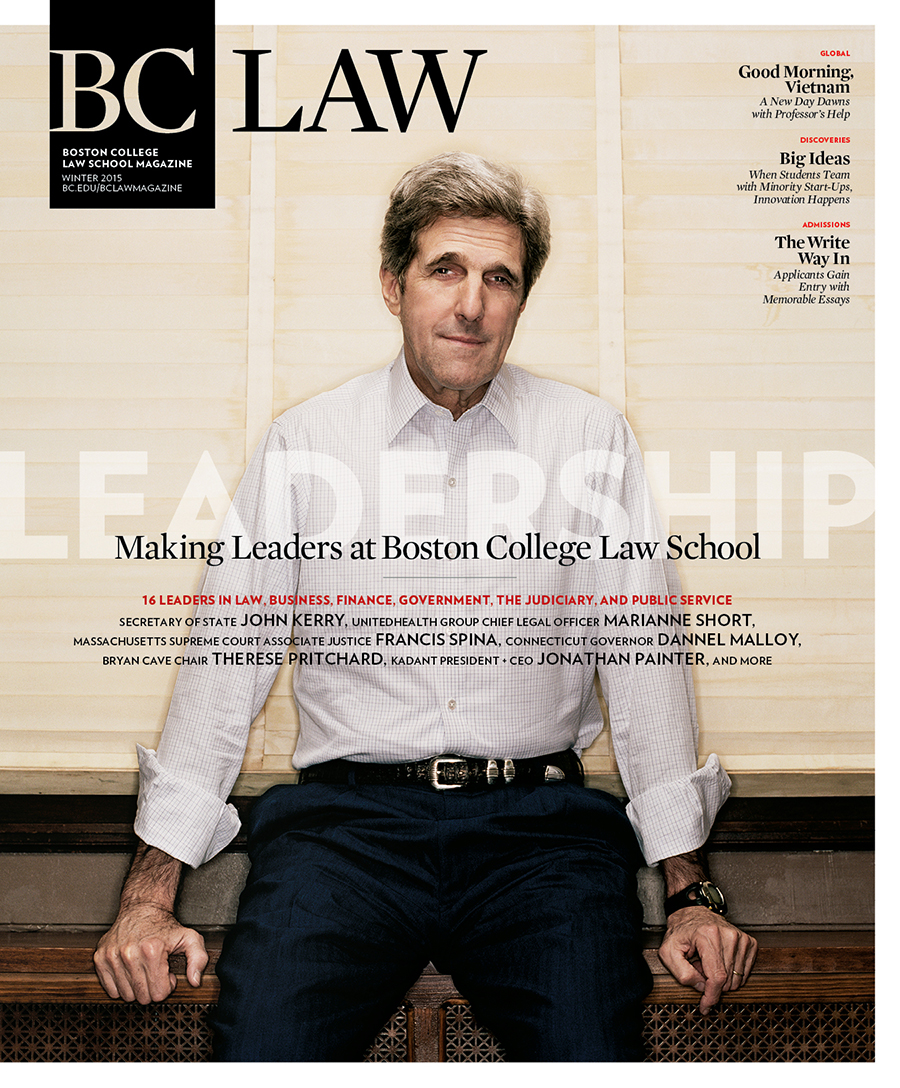The first time BC Law Magazine published outstanding admission essays was in the Fall/Winter 2009 issue. The personal statements of seven first-year students were a window into the character of the Class of 2012. We recently caught up with the original essayists to find out where they wound up.
Hannah Coman (formerly Rogers-Ganter) draws on her background in environmental policy as an associate at Mintz Levin in Boston, working in the firm’s Energy and Clean Technology Practice. She provides legal services to entrepreneurs and start-ups in alternative energy. “I wanted to be a part of bringing environmental issues more into the mainstream,” says Coman, who, in her application essay, paid tribute to her grandmother, whose social activism sparked Coman’s interest in law.
As one of three attorneys on staff at the AIDS Action Committee of Massachusetts, Sophia Hall works with marginalized groups struggling with HIV/AIDS or at high risk of contracting the disease. “I view myself as working on hot button human rights issues,” says Hall, who has steered her career by the passion for social justice expressed in her application essay. She tells students considering a career in public interest law: “Sometimes a win means you make a bad situation a little less bad.”
Investigating allegations of sexual assault, ruling on the ethics of gifts from outside companies, and defending sailors facing dismissal are all part of the job description for Joseph Horton, a Lieutenant in the US Navy and member of the Judge Advocate General (JAG) Corps. “There’s a lot of great potential in JAG,” says Horton, who is completing the two-year First Tour Judge Advocate Program. Horton was legal officer for his Special Operations helicopter squadron before applying to law school, and in his essay reflected on his efforts to save the military career of a struggling petty officer.
“Trying to balance all those things that are important,” like being home early enough to spend time with his two-and-a-half-year-old daughter, has led Tobias Koha on a different path from the one he envisaged when he entered BC Law, and wrote passionately about speaking up for people suffering injustice. For now, says Koha, he pursues those ideals through volunteering at his church, while working as in-house counsel at Net Lease Capital Advisors, Inc., a commercial real estate company in Lexington.
Among Anjali Nair’s cases as a staff attorney at the Southern Poverty Law Center (SPLC) in Montgomery, Alabama, is one concerning a group of 250 maltreated Indian guest workers she first encountered as a bilingual outreach paralegal at the center, when she worked there before law school. The fact that the case she described in her BC Law application has still not resolved is a lesson in “the complexity and progress of litigation,” says Nair, but her work at SPLC has confirmed her belief in “the law’s potential to have a real impact on people’s lives.”
“When I went to law school, my conception of lawyers was as litigators, in a courtroom,” says Leah Shabshelowitz, whose application essay was a hilarious account of her adventures as a cook on a schooner off the coast of Massachusetts and Maine. “Perhaps I am no longer entrusted with the safety of a vessel and her crew,” she wrote in conclusion, “but I trust myself…to do great things with a law degree.” She certainly has. After a clerkship at the Rhode Island Supreme Court, she is charting a new course as senior associate at Boston-based State Street, negotiating contracts relating to foreign exchange transactions, transition management services, and securities lending.
Already qualified as an attorney in her native China when she came to BC Law, Alice Wang wrote in her application essay of her ambition to build bridges between the Chinese and US legal cultures. As an associate at intellectual property specialists Finnegan, in Washington, DC, Wang focuses on patent litigation, client counseling, and patent prosecution. She regularly travels to China to visit clients and help the firm develop new networks in universities and government agencies. “Wherever there’s an opportunity to develop business, we go,” she says.



